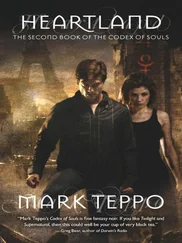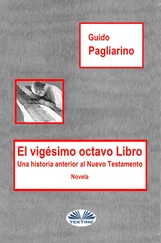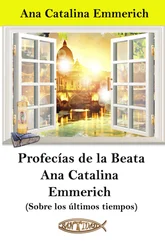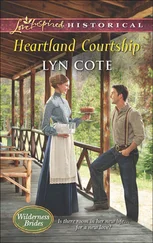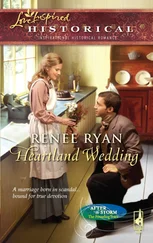Rafael’s official bio listed Elmira as his birthplace, and then jumped to Harvard, Oxford, and Rhodes Scholarship glory, with only a discreet wink to the spic vote (“the son of hard-working Hispanic immigrants”). Not a word about Shangri-La. Rafael despised that name, but was infatuated with his own, believing himself named after the archangel—a felicitous name, he once remarked, embraced by all three great monotheistic religions. “I can pass as anything anywhere,” he boasted to Glorita, who promptly informed me with tomboyish glee. I knew better, but did not want to torment him. Didn’t I cling to my own conceits to survive in the belly of the beast Glorita had named Aracnida, the Beautiful? Rafael Cohen had not been baptized after the Prince of Light, but after El Chino Rafael, the fat, ageless Chinese who for half a century pushed his bountiful fruit and vegetable cart through La Esperanza’s pig-stained streets, my grandmother confided, after swearing me to silence. El Chino doted on little girls, particularly Rafael’s mother, who was pretty as a picture and adored him, my grandmother added, willfully blind to the unsavory implications, as the custom had been in La Esperanza. There, Chinese men were highly prized and thought to come in only two flavors: the industrious eunuchs, like the ostensibly celibate El Chino Rafael, and the good fathers and providers, those openly shacked up with the black or mulatto women who always swarmed around them in the hope of catching themselves a Chinaman.
One place they hadn’t looked was Shangri-La’s cemetery, not to be found on Mrs. Crandall’s map. It was hard to find. An impassable field of hawthorns and thistles hid it from the barrio. The only access was through a narrow, muddy path that began near the river. The sun was high and bright, melting the snow on the Judge’s rosebushes. I decided to go visit the dead.
The cab left me at the end of the paved street. I went up the slippery path on foot, keeping my balance with the Judge’s walking sticks. I found my grandmother’s grave first, overrun by thorny weeds. I’d paid seventy-five dollars to lease the plot in perpetuity, and three times that for a fancy pink granite marker with her name and vital dates. My father went in next, then my mother. There was space for one more. “I want my ashes to live with a woman who loves me.” The phrase popped into my mind accompanied by the humiliating blare of mariachi horns. If only I could express with dignity and simplicity the horror of being abandoned underground, or encased in a marble wall, or describe the longing to be remembered, loved, and kept forever at home. Turgenev would have pulled it off even if he had been born a spic. Torn between ridicule and fear of death, I stood before my grandmother’s tomb and did all my limited talent afforded me: I sang for her the maudlin, pitiful phrase in my uncertain Spanish, so she could understand. “Yo quiero que mis cenizas vivan con la mujer que me quiera.” I cut my right index finger trying to remove a big weed. A drop of blood fell on the snow, perfectly round for a few seconds. This was my red flower for my mulish grandmother, my belligerent mother, and my puzzled father. “Talk to me,” I asked my grandmother. “What should I do now?” She tickled the soles of my feet but did not say a word. The sun began dropping behind the cemetery hill.
Rafael’s parents were buried across from mine. Weeds also lurked there under the icy surface. A small Christian cross was etched on the gray stone marker, as tradition and superstition, rather than piety, dictated in La Esperanza. Genoveva had demanded it and Ezequiel had acquiesced, “with some repugnance,” he confessed to me at my grandmother’s wake. A day after I purchased our plot, they had gotten their own on an installment plan, and ordered a marker. I had to battle with the stonemason to keep the wretched cross off our own pink marker. My mother was too shrewd not to have noticed its absence, and too beholden to La Esperanza not to lament it. After a lifetime in Elmira, her arbiter in all matters of custom, morality, and aesthetics remained La Esperanza, somewhat softened by distance and changing times, but still clad in its imperious certainty.
I searched the cemetery looking for Glorita’s grave. I wanted to find her there. Dead at nineteen, the last age I saw her, or not long thereafter. Forever young and wicked, my enchanting Glorita, font of all yumminess, begetter of Bebe and all other scrumptious, crazymaking girls. Glorita, whose subterranean genealogical links with Mrs. Crandall and McCabe I sensed but did not yet understand. I wanted to find Glorita’s grave to immortalize her divine girlishness, protect her honeyed pussy, coddle her tiny velvet ears, keep her alive forever, even give her new life: bring her back from that valley of death where vultures pick at the bones of the young grown old. A skinny black dog with red, mangy patches on its back watched me from behind a tree, then followed me at a distance, as I moved from one row to the next.
Dusk washed out the inscriptions on the tombstones. I had to get close to read them, often aided by my fingers. Each smelled different from the other, even when they were the same type of stone and from the same year. Polished granite, impermeable, had the faintest smell, but its deeply etched inscriptions released unique scents produced by the particular mix of animal, vegetable and mineral debris caught in them. In gray stone I detected the earthy, smoky, or mineral aromas of mushroom, iron, and, unexpectedly, red wine aged in oak barrels, none of which were physically present. I also caught a whiff of late menstrual blood, dark red and richly clotted.
On my last station of the Glorita cross, when I had almost given up hope, I found the grave of her godmother, Altagracia. Hers was the only name on the tombstone and on the gaily-colored plastic wreath. Oh, how I wished my Glorita had been there. I would have kissed the soil, I would have talked to her, I would have sung to her. Disappearance without physical death is the worst torment. In time, like Glorita’s. Or in space, like McCabe’s. Sitting by Altagracia’s grave, I understood that killing McCabe would be the reverse of death. Had I known back then what I knew now, I would have killed Glorita thirty years ago. But we thought we were eternal and eternally young. I did not any longer wish for Glorita to be in Altagracia’s grave. As much as her loss without death anguished me, I did not want her here. “Forgive me, sweet Glori, for I failed to kill you,” I said.
I had never given a thought to what would happen to McCabe’s body after I killed her. My mission began and ended with the act itself, followed by my ecstatic liberation. I had envisioned Firecop harassment—and was prepared for it—but not McCabe’s funeral, burial, or memorial. I stood up holding on to Altagracia’s monument, embarrassed by my egotistical blindness, shaken like someone who had taken one step into the abyss and then retreated. I thanked Glorita for setting me straight. I thanked Altagracia, my parents, my grandmother, Ezequiel Cohen and Genoveva, and all the lonely and forgotten dead in this cemetery. The thicket of brambles and thistles that hid them from Shangri-La showed how much they were wanted. They were not tricked by any Day of the Dead tomfoolery. I swore with the dead as my witnesses, and my shining Glorita as my patroness, that I would not allow McCabe to be treated like a piece of dead meat. I would place McCabe on an altar, honorably preserved in full blood, gore, piss, shit, and saliva, before rigor mortis set in and secretions were congealed. I would burn her with my own hands, and spread her ashes over the Little Ohio.
McCabe came back to me at that moment. Vividly. Helped by the dead, I had finally emptied my body of Mrs. Crandall. I heard McCabe’s voice describing the Biloxi marshes and the migrating birds. I saw her listening to the third movement of Franck’s Symphony with her eyes closed; crouching by the rosebush holding the Judge’s secateurs in her right hand, and in her left, a diseased stem which she was about to prune; silhouetted against the noon sky, standing at the edge of the ravine.
Читать дальше



